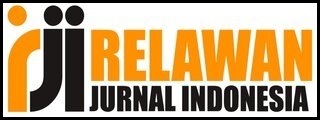The Effect of Macro-indicators and Profit Sharing on Mudharabah Deposits: Evidence from Indonesia
DOI:
https://doi.org/10.58777/rie.v1i2.173Keywords:
Interest Rate, Profit Sharing Rate, Gross Domestic Product, Mudharabah DepositsAbstract
This research seeks to ascertain how interest rates, GDP, and profit-sharing relate to mudharabah savings in Islamic commercial banks. This study employs a quantitative research design and measures its findings using a panel data regression approach. Sharia commercial banks that registered with the Financial Services Authority (OJK) between 2016 and 2020 make up the research population. There were 180 observations in total in this study because the sample was chosen using the purposive sampling method and included a total of nine Sharia commercial banks. This study employed secondary data, specifically quarterly financial reports. The study's findings demonstrate that mudharabah deposits benefit from interest rates. Mudharabah benefits from the amount of profit sharing. deposits. Mudharabah deposits are positively impacted by the GDP. It is well recognized that the amount of mudharabah savings is influenced by GDP, a measure of people's income. The managerial ramifications of how GDP, profit-sharing, and interest rates affect mudharabah deposits can be very significant in a financial context. Interest rates, income uncertainty, and risk management minutes. Profit sharing, compliance with Sharia principles, and product development and portfolio management.
References
Aghnia, M. (2015). Analysis of Factors that Influence Mudharabah Savings at Bank Syariah Mandiri 2006-2013. Journal of Economic Development Analysis. 4(2).https://doi.org/10.53978/jd.v4i2.36
Alinda. (2016). The Influence of Interest Rates and Profit Sharing Ratios on Mudharabah Deposits. Journal of Accounting Science and Research, 5 (1)
Anwar Sanusi, (2011), Business Research Methods. Salemba Empat, Jakarta
Arshad, NC and Nurfadilah, D. (2017). Factors Influencing Changes in Deposits in Sharia Commercial Banks: Comparative Study between Malaysia and Indonesia. Journal of Islamic Banking and Finance, 2(5), 37-46.https://doi.org/10.15640/jibf.v5n2a6
Bilgies, A., Fauzan, R., Santosa, P. W., & Wahyuni, S. (2023). Manajemen Keuangan Islam. In D. P. Sari (Ed.), Repository.ibs.ac.id (First). GlobalL Eksekutif Teknologi. http://repository.ibs.ac.id/4464/%0Ahttp://repository.ibs.ac.id/4464/1/Bukti Pengajaran MKI.pdf
Diyanto, V. and Savitri, E. (2015). Factors Influencing the Growth of Sharia Bank Mudharabah DPK. Pekbis Journal. 7 (3)
Farizi, FA and Riduwan A. (2016). The Influence of Inflation, Interest Rates, Liquidity, and Profit Sharing on Mudharabah Deposits. Journal of Accounting Science and Research, 5 (2)
Ghozali, Imam. (2016). Multivariate Analysis Applications with the IBM SPSS 23 Program (8th Edition). Printing VIII. Semarang: Diponegoro University Publishing Agency.
Hilman, L. (2016). Factors Affecting Sharia Banking Mudharabah Deposits in Indonesia ISSN: 2319-8028
Ismail. (2010). Syariah banking. Jakarta: KencanaPrenada Media Group.
Ismail. (2011). Syariah banking. Jakarta: KencanaPrenada Media Group
Junior, Nila. (2016). Analysis of Factors that Influence Mudharabah Deposits in Sharia Banks in Indonesia for the period (2011-2015), Economics, Faculty of Economics, UII Yogyakarta, 3 (1).https://doi.org/10.20885/jeki.vol3.iss1/art5
Karim, Adiwarman. (2011). Fiqh & Financial Analysis. Jakarta: PT. Raja Grafindo Persada.
Kuncoro, Mudrajat. (2011). Quantitative method. Yogyakarta: College of Management Science: YKPN
Muhammadinah. (2011). The Influence of Bank Indonesia Interest Rates and Inflation Rates on the Rupiah Exchange Rate against the US Dollar. Journal of Economics and Accounting. 1(2) (FDR) on the Profitability of Sharia Banking in Indonesia. 19(1)
Muliawati, NL and Maryati, T. (2015). Analysis of the Effect of Inflation, Exchange Rates, Interest Rates and Profit Sharing on Deposits at Pt. Bank Syariah Mandiri 2007-2012. National Scholars Seminar.
Naf'an. (2014). Musyarakah and mudharabah financing, Yogyakarta: Graha Ilmu
Natalia, E., M. Dzulkirom, and SM Rahayu. (2014). The Influence of Sharia Bank Deposit Profit Sharing Levels and Commercial Bank Deposit Interest Rates on the Amount of Mudharabah Deposit Savings: Study at PT. Bank Syariah Mandiri Period 2009 – 2012). Journal of Business Administration 9(1): 1 -7
Pratiwi R. and Lukmana A. (2015). The Influence of Foreign Currency Exchange Rates and Profit Sharing Rates on the Volume of USD Mudharabah Deposits in Sharia Banking (Period January 2011 – March 2015). Journal of Sharia Economics and Banking 3 (1).https://doi.org/10.46899/jeps.v3i1.154
Rahmawat, Ruslizar. (2016). The influence of the level of profit sharing on mudharabah deposits, financing to deposit ratio, and deposit interest rates on the growth of mudharabah deposits in sharia commercial banks in Indonesia, Scientific Journal of Accounting Economics Students 1(2).https://doi.org/10.24815/jdab.v2i1.3623
Santosa, P. W. (2011). The correlations of non-performing financing and external factors to health level of sharia banking. Journal of Business and Management, XII(Ii), 91–104.
Santosa, P. W. (2020). The moderating role of firm size on financial characteristics and Islamic firm value in the Indonesian equity market. Business: Theory and Practice, 21(1), 391–401. https://doi.org/10.3846/btp.2020.12197
Santosa, P. W., & Hidayat, A. (2014). Riset Terapan: Teori dan Aplikasi (First Edit). Globalstat Solusi Utama.
Santosa, P. W., Setianingrum, A., & Huda, N. (2020). The Relationship of Macro-risk Indicators, Internal Factors, and Risk Profile of Islamic Banking in Indonesia. ETIKONOMI, 19(2), 221–236. https://doi.org/10.15408/etk.v19i2.15528
Sholikha, AF (2018). The Influence of Interest Rates, Profit Sharing Levels, Liquidity, Inflation, Bank Size, and Gross Domestic Product Growth on Mudharabah Deposits of Sharia Commercial Banks in Indonesia. Journal of Islamic Economics. 1(6).https://doi.org/10.24090/ej.v6i1.2045
Slamet, Wiyono. Maulamin Taufan. (2013). Understanding Sharia Accounting in Indonesia. Jakarta: Media Discourse Partners.
Sudarsono, Heri. (2012). Sharia Banks and Financial Institutions: Description and Illustration. Yogyakarta: Ekosoria
Sunariyah. (2013). Introduction to Capital Market Knowledge (6th Edition). Yogyakarta. Publisher: UPP STIM YKPN.
Sunyoto, Danang. (2014). Management Information Systems Organizational Perspective, first printing. CAPS (Center for Academic Publishing Services) Publisher: Yogyakarta
Sunyoto, Danang. (2014). Management Information Systems Organizational Perspective, first printing. CAPS (Center for Academic Publishing Services) Publisher: Yogyakarta.
Wahyuningtyas, Dika., (2015), The Influence of Sharia Bank Deposit Profit Sharing Levels and Commercial Bank Deposit Interest Rates on the Amount of Mudharabah Deposits (Study on Sharia Commercial Banks in Indonesia for the 2010-2013 Period), Accounting, Faculty of Economics and Business, Muhammadiyah University Surakarta.http://eprints.ums.ac.id/id/eprint/38984
Wulansari, DI (2015). The Effect of Profit Sharing and Interest Rates on the Amount of Mudharabah Deposits (Sharia Banking Case Study 2009-2013). Scientific journals
Downloads
Published
How to Cite
Issue
Section
Copyright (c) 2024 Sela Stalia, Uun Sunarsih, Nursanita Nasution, Maya Mustika, Preztika Ayu Ardheta

This work is licensed under a CC Attribution-ShareAlike 4.0
 Views: 163
|
Views: 163
|
 Downloaded: 86
Downloaded: 86










